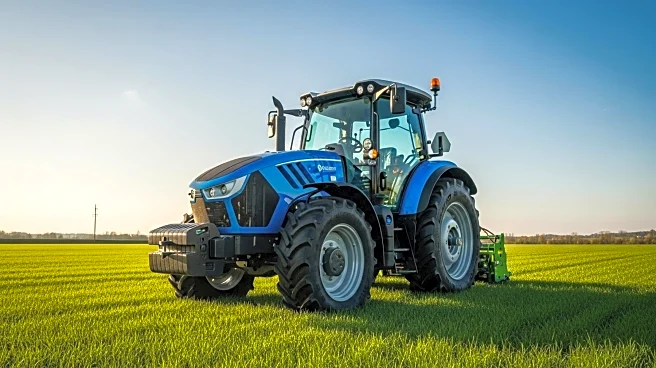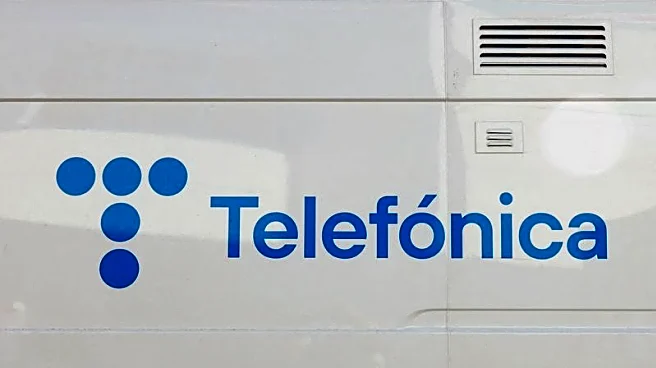What's Happening?
Farmers are increasingly exploring electric tractors as a sustainable alternative to traditional diesel-powered machinery. Michigan State University researchers have been developing an electric tractor for over two years, receiving feedback from farmers who tested the equipment. The electric tractor offers benefits such as reduced emissions and quiet operation, appealing to small farmers focused on sustainability. However, concerns remain about battery limitations, cost, and field clearance. Despite these challenges, companies like John Deere and Monarch Tractor are investing in electric tractor prototypes, aiming to provide eco-friendly solutions for smallholder farmers worldwide.
Why It's Important?
The shift towards electric tractors represents a significant step in reducing agriculture's contribution to climate-warming emissions. As sustainability becomes a priority, electric tractors offer a cleaner alternative, potentially lowering operational costs for farmers with solar panels. This development could lead to increased adoption of eco-friendly practices in agriculture, benefiting both the environment and farmers' profitability. However, widespread adoption faces hurdles such as battery technology limitations and the need for infrastructure like fast chargers. The interest from companies and researchers indicates a growing market for sustainable farming solutions, which could transform agricultural practices in the U.S.
What's Next?
The future of electric tractors depends on overcoming current limitations, such as battery life and power. Researchers and companies are working on improving these aspects to make electric tractors more viable for larger farming operations. As technology advances, electric tractors may become more compatible with automation, offering efficiency and cost benefits. The market for electric tractors is expected to grow, particularly among small farmers and those interested in sustainable practices. Continued innovation and investment in this area could lead to broader adoption and integration into mainstream agriculture.
Beyond the Headlines
Electric tractors could pave the way for increased automation in agriculture, reducing the need for manual labor and enhancing efficiency. This shift may lead to ethical considerations regarding job displacement and the role of technology in farming. Additionally, the environmental benefits of electric tractors align with global efforts to combat climate change, potentially influencing agricultural policies and practices. As the technology evolves, electric tractors could become a standard in sustainable farming, driving long-term changes in the industry.











